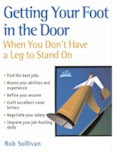"When you are reviewing a resume for a job - what are the critical assessment factors for making a good match (between the candidate and the position) and not bypassing someone who is qualified?"
Although he received a variety of answers, most were what I would consider distinctly unhelpful. Some focused on the importance of grammar and spelling. Others clearly indicated a bias for or against particular degrees. Still others talked about the importance of meeting minimum requirements. While I agree that intelligence, education, and experience are important, it pains me to see people spend so much energy focusing on what I consider artificial measures of potential.
Do I think spelling and grammar are important? Absolutely. Nothing turns me off more than people who butcher and torture the language. That's one point on which I agree completely with the other people who responded. However, I don't agree that education is a particularly good predictor of success. Nor do I think that a minimum number of years of experience is a meaningful requirement.
I cringe when I see "5-7 years experience required". Anyone with more than a few years in the workforce has worked with people who in 5 years have not accomplished a single thing. As a result, "5 years experience" is what I call a meaningless quantifier. Instead, you have to ask yourself, "What does the company expect me to have accomplished or been exposed to during those five years?" If you can answer that question, you'll be in a much better position.
Now that I've talked about what isn't necessarily important, let me say a few words about what IS important. To answer the original question about resume screening, it is important to take a step back and consider what makes a person successful in any given job. In other words, what separates top performers from capable employees with a been-there, done-that attitude?
Three important qualities: Passion, Initiative, and Resourcefulness.
There are other qualities, depending on the job/industry, but these are my top three because they are relevant to a wide range of positions.
Smart companies look for these specifically because they know people cannot be trained in any of these areas. They either have it or they don't. Unfortunately, these qualities almost never show up in the resume simply because of the ineffective, cookie-cutter approach most people take to resume-writing. Of course, it is also worth noting that these are difficult (although not impossible) to communicate in that medium.
To make matters worse, many people who have all three qualities camouflage them behind a completely ineffective presentation. There are a variety of reasons for this, but the short version of the story is that people don't know the difference between bragging and healthy self-promotion. As a result, they either take their accomplishments for granted or hope they will somehow come out in the interview--an interview that, in all likelihood, will never happen because the resume didn't do its job.
These are just a few of the reasons I encourage people to write cover letters that communicate passion as well as relevant accomplishments. A hiring manager has to be left thinking: "Wow! If this person can do that for those companies, just think what he or she could do for me." Anyone who has ever screened resumes can appreciate just how rarely they are left with this impression--or anything even close.

.jpg)